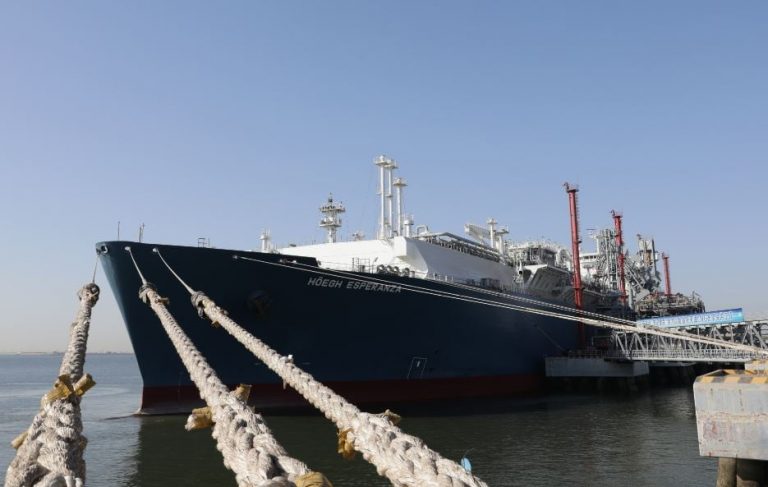Floating player Hoegh LNG has signed deals with Germany to charter two floating storage and regasification units as the European country looks to reduce reliance on Russian gas.
Hoegh said in a statement on Thursday it has signed binding implementation agreements with the German Federal Ministry for Economic Affairs and Climate Action.
Under the deals, Hoegh will charter out two FSRUs from its fleet for operations in Germany for 10 years.
The detailed FSRU contracts are scheduled to be completed by September/October, and FSRU operations are expected to commence at the end of this year, according to Hoegh.
“We are very pleased and honored to be selected by the German government to support Germany’s security of energy supply with two of our modern, large-capacity FSRUs,” interim CEO, Thor Jorgen Guttormsen, said.
Hoegh did not provide any additional information.
Wilhelmshaven terminal
Sources previously told LNG Prime that Hoegh’s uncommitted 170,000-cbm FSRU Esperanza may serve one of the planned terminals in Germany under a charter deal.
Besides Esperanza, the second vessel Hoegh mentioned could be the 170,000-cbm Hoegh Galleon. The firm signed a deal with Australian Industrial Energy (AIE) for this unit last year but the deal is conditional as AIE still needs to take a final investment decision on the Port Kembla project.
Uniper said in a separate statement on Thursday it had started work on Germany’s first LNG import facility in Wilhelmshaven. With a capacity of up to 7.5 billion cbm per year, the Wilhelmshaven facility would meet around 8.5 percent of Germany’s natural gas requirements in the future, it said.
The firm did not reveal details on the FSRU which would serve the facility.
However, according to a statement by the Lower Saxony government, one of the two Hoegh’s FSRUs would serve this facility in Wilhelmshaven from winter 2022/2023 and the other in Brunsbuettel from 2023.
Four FSRUs
German energy firm RWE, a shareholder in the planned Brunsbuettel LNG import terminal, confirmed in a separate statement it has signed the charter deals for two 170,000-cbm FSRUs with Hoegh.
The firm said the two 300 meters long FSRUs, chartered on behalf of the government, would have the capacity to deliver between 10 and 14 bcm of natural gas can to the German gas market.
In March, the German government said Uniper and RWE were finalizing charter talks to secure three FSRUs for Germany, while the economy ministry mentioned the fourth unit as well in a recent progress report.
Besides Hoegh, sources also said that Greece’s Dynagas was the second owner in these talks. Dynagas has two newbuild FSRUs in its fleet, namely the 174,000-cbm Transgas Force and Transgas Power.
The statement by the Lower Saxony government confirmed that Germany also signed two FSRU charters with Dynagas on Thursday. This means that Uniper signed the charter deals for these two units.
Germany said it would invest about 2.94 billion euros ($3.11 billion) in these FSRU developments.
The country currently has no large LNG terminals but it will build several facilities as it looks to slash reliance on Russian gas.
These include proposals from German LNG Terminal in Brunsbuettel and Uniper in Wilhelmshaven, which received backing from the government, as well as Hanseatic Energy Hub’s Stade facility and the TES hub in Wilhelmshaven.
(Article updated to add more details regarding the FSRU charters.)

